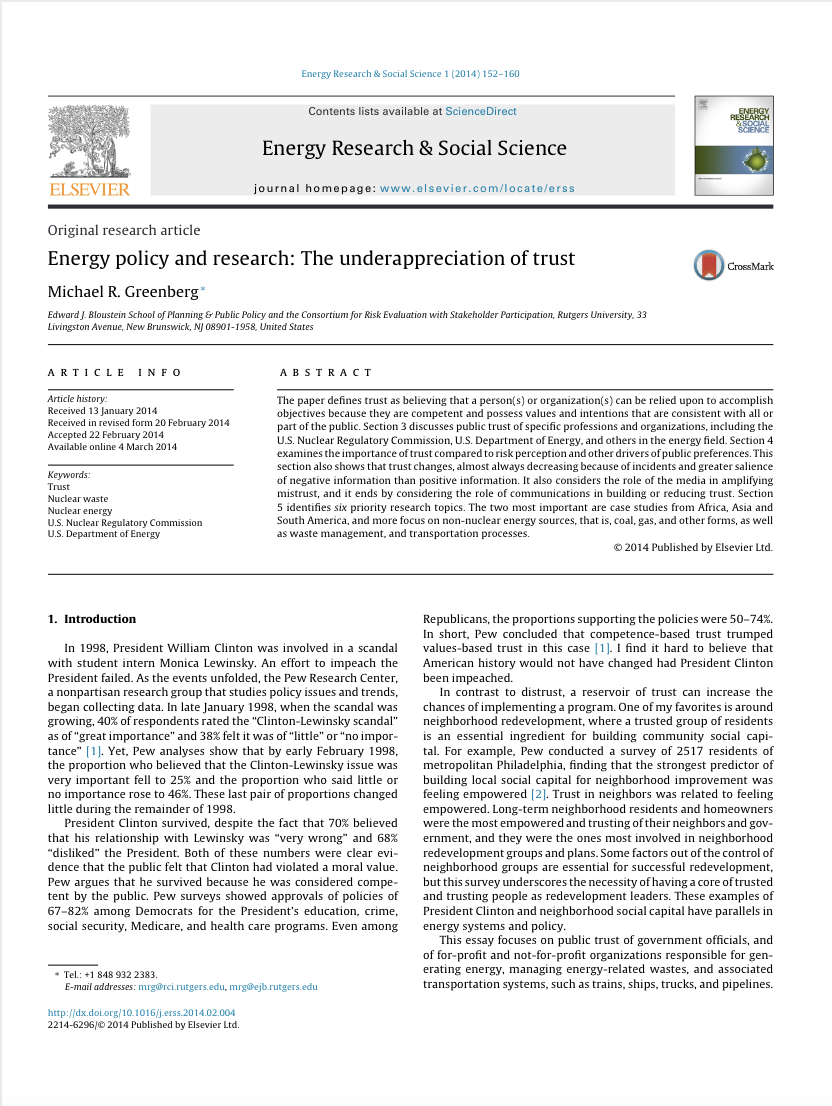The paper defines trust as believing that a person(s) or organization(s) can be relied upon to accomplish objectives because they are competent and possess values and intentions that are consistent with all or part of the public. Section 3 discusses public trust of specific professions and organizations, including the U.S. Nuclear Regulatory Commission, U.S. Department of Energy, and others in the energy field. Section 4 examines the importance of trust compared to risk perception and other drivers of public preferences. This section also shows that trust changes, almost always decreasing because of incidents and greater salience of negative information than positive information. It also considers the role of the media in amplifying mistrust, and it ends by considering the role of communications in building or reducing trust. Section 5 identifies six priority research topics. The two most important are case studies from Africa, Asia and South America, and more focus on non-nuclear energy sources, that is, coal, gas, and other forms, as well as waste management, and transportation processes.
